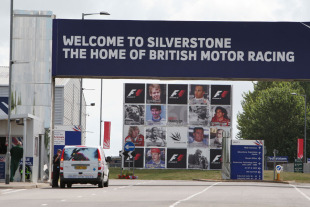- Formula Money
Counting the cost of F1

A fortnight ago, Formula Money's Caroline Reid looked at teams and drivers. In the second part of this feature on questions you asked about the sport's finances, she looks at sponsorship, ticket prices and TV income
We often hear about the huge sums Bernie Ecclestone charges to host a grand prix. Exactly how much does he cream off from circuits?
Formula Money estimates that the total amount that Formula One Management (FOM) received from the 19 Formula One circuits this year was $561 million. Bernie Ecclestone personally doesn't get any direct share in this, however, as a 5.3% shareholder in FOM's Jersey-based parent company Delta Topco he receives a portion of the business's profits. The revenue from race hosting fees is believed to be the source of FOM's biggest profits since there are very few costs associated with it: the company simply grants the rights to races and receives money for doing so.
How many circuits stage races only because of government funding and how many still go it alone?
Only Silverstone and Suzuka receive no government money. All the other races are supported financially by local or national governments through funding of the races themselves or of the construction and maintenance of the circuits.
Does every circuit get treated the same re income they keep and have to pay?
Most circuits take only revenue from ticket sales from their grand prix, though a few have special deals with Formula One Management that entitle them to a share of trackside advertising or corporate hospitality revenues as well.
How much does it cost to sponsor a grand prix?
A typical grand prix title sponsor pays around $6 million per race, though some sponsors pay extra to gain additional coverage.
What does it cost a tyre manufacturer to provide tyres for the season? And is it a straight deal where they supply in return for exposure?
Bridgestone spent around $100 million a year on developing and supplying the tyres as well as marketing its involvement. As well as the exposure, it also benefited from the opportunity to test its technologies in extreme conditions and to develop its engineers' skills as a result of this.
Why don't ticket prices reflect the local market, resulting in poor attendances in places like Turkey where the costs are prohibitive?
Turkey actually has some of the lowest ticket prices on the calendar - $49 for a three-day general admission ticket, beaten only by $39 for an equivalent ticket in Malaysia. Turkey's problem is that there simply is little local interest in the sport, whatever the price. With race hosting fees reaching as high as $50 million, the circuits have to be very careful to judge what the fans will pay for a ticket as they could quickly hit financial difficulty if the prices are too high.
How much income does the FIA get from TV deals? And how much does the BBC pay and does the FIA have any rules about broadcasts being on free-to-air channels?
The FIA doesn't get any money directly from TV deals, however Formula One Management pays it an annual fee for the whole commercial rights which comes to an estimated €7.4 million. The BBC is one of the highest-paying broadcasters and pays FOM $50 million each year for the rights. Like the other free-to-air broadcasters it benefits from a clause in the Concorde Agreement, the contract between FOM, the FIA and the teams, which guarantees that F1 will be broadcast free-to-air wherever possible. This is designed to protect sponsorship revenues, as the higher the TV audience, the more money sponsors are willing to pay.

